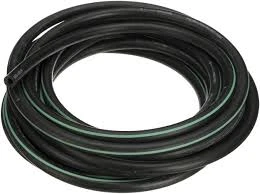flexible fuel line
Oct . 30, 2024 17:39 Back to list
flexible fuel line
Understanding Flexible Fuel Lines Key Features and Applications
Flexible fuel lines are an essential component in various automotive and industrial applications, designed to transport fuel efficiently while accommodating the dynamic nature of engines. Made from advanced materials, these hoses offer numerous advantages over traditional rigid fuel lines, making them a preferred choice in modern engineering.
One of the primary features of flexible fuel lines is their ability to withstand high temperatures and pressures. Typically constructed from reinforced rubber or composite materials, they are engineered to handle the varying conditions found in an engine environment. This durability ensures a long lifespan, reducing the frequency of replacements and maintenance costs for vehicle owners.
Another significant advantage of flexible fuel lines is their versatility. They can be easily routed in different configurations, allowing for flexible installations within crowded engine compartments. This adaptability is particularly beneficial in modern vehicles, where space is often limited and components must fit snugly together. Flexible fuel lines can bend and twist without compromising their integrity or causing leaks, thereby enhancing the overall efficiency of the fuel delivery system.
flexible fuel line

In addition to their physical properties, flexible fuel lines are also resistant to various fuels, including gasoline, diesel, and biofuels. This chemical resistance is crucial as it prevents degradation that could lead to leaks or blockages within the fuel system. As the automotive industry shifts towards alternative fuels and hybrid systems, the demand for versatile fuel lines that can accommodate a range of fuel types continues to grow.
Installation of flexible fuel lines is generally more straightforward than that of rigid counterparts. The lightweight nature of these hoses simplifies the installation process, reducing labor time and associated costs. Moreover, many flexible fuel lines are designed with user-friendly features, such as pre-cut lengths and built-in fittings, which further streamline the assembly process.
Safety is another critical consideration in the design of flexible fuel lines. High-quality hoses are equipped with safety features like burst resistance, ensuring that they can withstand extreme conditions without failing. This is particularly important in preventing fuel leaks that can lead to hazardous situations, including fires and environmental contamination.
In conclusion, flexible fuel lines play a vital role in the efficiency, versatility, and safety of fuel systems in both automotive and industrial applications. Their ability to adapt to various conditions, combined with their durability and chemical resistance, makes them an indispensable component in modern machinery. As technology continues to advance, the development of even more resilient and efficient flexible fuel lines will be crucial in meeting the growing demands of the automotive industry and ensuring the safety and reliability of fuel delivery systems.
